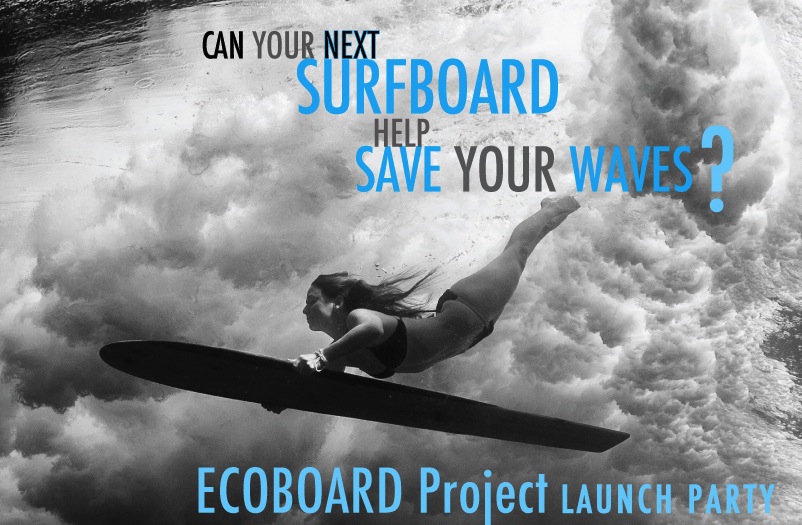 Of all the extreme water sports out there, the activity of surfing may have one of the most smallest environmental footprints of any hobby or sport. After all, it’s human power and nature’s energy combining to provide thrill ride after thrill ride. Only just recently have people figured out how to bring mobile electronics with them while surfing (yes, sad, but true…may only be scuba that is immune from iPods nowadays).
Of all the extreme water sports out there, the activity of surfing may have one of the most smallest environmental footprints of any hobby or sport. After all, it’s human power and nature’s energy combining to provide thrill ride after thrill ride. Only just recently have people figured out how to bring mobile electronics with them while surfing (yes, sad, but true…may only be scuba that is immune from iPods nowadays).
But the total impact of surfing as a growing sport that relies on styrofoam blocks shaped down and encased in fiberglass is tremendous. Adding the adhesives, patches, petroleum-based waxes and other components needed to continue with the sport, the inputs are as unsustainable and unhealthy as any other sport or hobby. At the end of their useful life, boards are simply not very recyclable, and most of them just end up getting landfilled or burned.
The ratio of carbon emitted per weight of product is an astounding 110:1 (roughly equivalent to electronics!), whereas most consumer goods are in the 4:1 range.
The Ecoboard Project aims to change the industry. Perhaps the newest in the astoundingly growing field of eco-labels, the EcoBoard logo certifies a surfboard as environmentally preferable. Their criteria:
With a combination of recycled materials, biobased resins, and a network of shapers willing to custom make Ecoboards, the market appears poised to make a dent in the environmental footprint of the surf industry.
It’s unclear, however, how the market will respond to the Ecoboard. Previous iterations of environmentally friendly surfboards, including the bamboo boards that I drooled over for a while, have flopped. In addition, market research has shown that people may be willing to pay a price premium for green goods, but that premium is much smaller when the personal benefits of that product are less evident (in other words, organic food’s premium is higher than that of sustainably harvested 2×4’s). The Ecoboard folks are smart to include performance-based criteria in their certification process. If they didn’t, and people bought an Ecoboard only to find that its performance was substandard would only be further deterred by future advancements in the surf industry.


